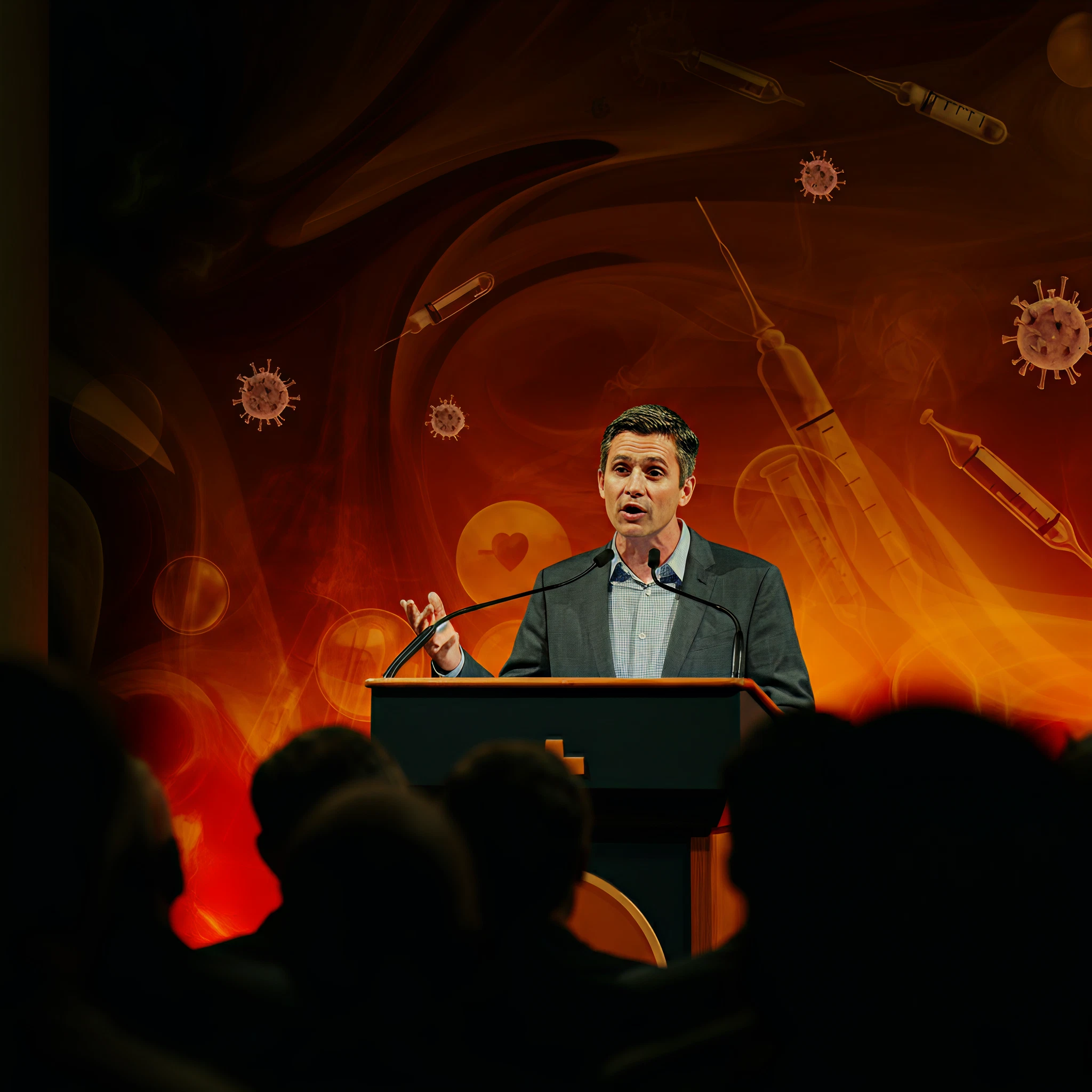Health and Human Services Secretary Robert F. Kennedy Jr. has once again stirred controversy with his statements about vaccines. While supporting measles vaccinations as an effective preventive measure, Kennedy falsely claimed that the protection offered by the measles vaccine “wanes very quickly.” His remarks have drawn sharp criticism from leading health experts, who assert that these claims are scientifically unfounded.
The Measles Vaccine and Its Proven Effectiveness
Medical professionals are speaking out to correct Kennedy’s claims, emphasizing that two doses of the measles, mumps, and rubella (MMR) vaccine provide lifelong immunity. Dr. Paul Offit, Director of the Vaccine Education Center at Children’s Hospital of Philadelphia, explained that the vaccine produces memory cells in the immune system, allowing them to recognize and fight the virus for a lifetime.
“This country eliminated measles in 2000. That would not have been possible if vaccine immunity waned quickly,” Offit said. Any cases of measles in the United States today are largely the result of international travelers introducing the virus into communities with low vaccination rates—not because the vaccine lacks durability.
The Facts About Measles and Recent Outbreaks
Recent outbreaks in the U.S. have highlighted the risks of undervaccinated communities. A significant spike in cases was recently traced to a predominantly Mennonite community in Texas, where vaccine hesitancy is widespread. This outbreak has led to 668 cases since January, including tragic fatalities, marking the highest count since 2019.
Experts like Dr. William Moss from the Johns Hopkins International Vaccine Access Center warn that the country risks losing its measles elimination status if vaccine misinformation continues to spread. Moss pointed out that misinformation, like Kennedy’s unwarranted doubts about vaccine longevity, fuels vaccine hesitancy and jeopardizes public health.
Examining Kennedy’s Claims About Vaccine Safety
Kennedy further claimed that vaccines, in general, have not been adequately safety tested, asserting that many are only observed for short durations without placebo control groups. This controversial statement has added fuel to the debate over his leadership of major federal health agencies, including the FDA and CDC.
However, vaccine researchers have refuted these claims, stressing that vaccines are among the most rigorously tested medical interventions. Dr. Ofer Levy, Director of the Precision Vaccines Program at Boston Children’s Hospital, explained that vaccine development typically spans 10 to 20 years, ensuring both safety and efficacy. Even after approval, vaccines are subject to ongoing government monitoring for adverse effects.
“The idea that vaccines aren’t tested thoroughly or are unsafe simply doesn’t hold up to scientific scrutiny,” Levy added.
Context for Active Comparators and Placebos
Kennedy has also highlighted the use of active comparators in vaccine trials as a concern, suggesting that vaccines should be tested against inert placebos like saline or water. While there’s room for more safety studies, experts argue that these criticisms lack merit. Using active comparators allows for ethical testing because it avoids withholding effective medicine from trial participants. This approach is standard practice and has been thoroughly vetted by the FDA.
Dr. Paul Offit countered Kennedy’s argument, noting that “active comparators” ensure that researchers measure new vaccines against pre-approved, effective versions. This methodology does not compromise safety or efficacy.
The Role of Responsible Messaging in Public Health
Experts have raised concerns that Kennedy’s mixed messaging could harm public trust in vaccines and confuse the public during critical outbreaks. While Kennedy claims to support personal choice, doctors warn that his rhetoric often appears to cater to anti-vaccine sentiment, undermining the collective effort to combat preventable diseases like measles.
Dr. Moss commented, “Kennedy has this way of twisting facts, making it harder for the public to make fully informed health decisions.”
Moving Forward
Despite Kennedy’s statements, the overwhelming consensus among health experts remains clear: vaccines are safe, effective, and crucial in preventing outbreaks of measles and other life-threatening diseases. The spread of misinformation threatens the progress made in public health, especially when it comes from leaders in key positions of influence.
Health professionals and organizations will need to continue their efforts to provide clear, evidence-based information to combat vaccine misinformation and protect public health. For now, it’s critical to follow expert guidance and trust proven science when it comes to vaccination.
Final Thoughts
Vaccination remains one of the most significant achievements in modern medicine. It has saved countless lives and eradicated or controlled once-deadly diseases. It is imperative to rely on credible evidence and medical expertise, particularly when navigating sensitive public health issues like vaccination.








